Mentors
2024 Mentors
-
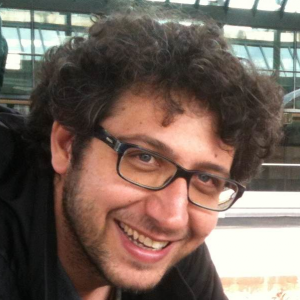
Giuseppe B. Cerati
Associate Scientist, Fermi National Accelerator Laboratory -

Kyle Chard
Research Associate Professor, Department of Computer Science; Researcher, Argonne National Laboratory -
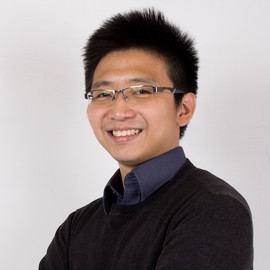
Yuan Chang Leong
Assistant Professor, Department of Psychology -

Madeleine Torcasso
Eric and Wendy Schmidt AI in Science Postdoctoral Fellow -
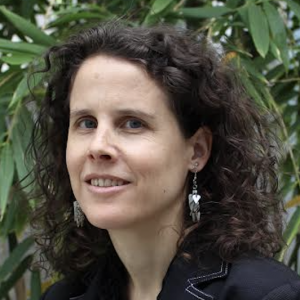
Julia Koschinsky
Executive Director, the Center for Spatial Data Science -
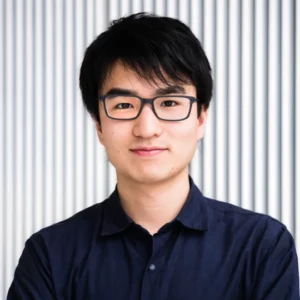
Ken Nakagaki
Assistant Professor, Department of Computer Science -
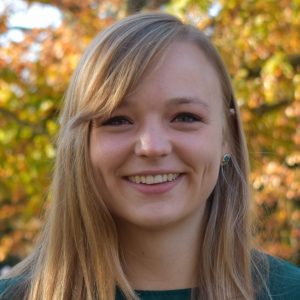
Sarah Sebo
Assistant Professor, Computer Science -
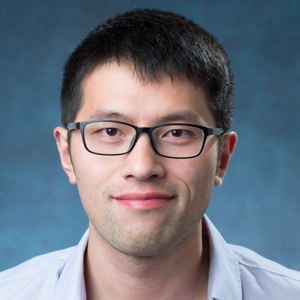
Chenhao Tan
Assistant Professor of Computer Science and Data Science -
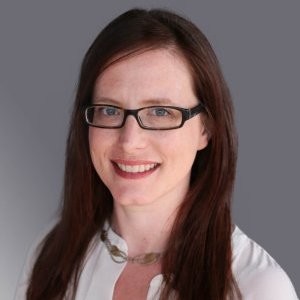
Sandra Tilmon
Healthcare Data Scientist, Data for the Common Good -
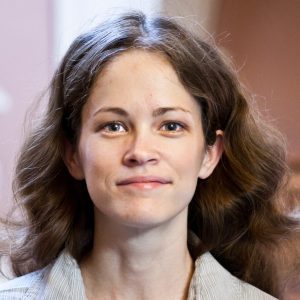
Anna Woodard
Research Data Scientist, Data Science Institute -
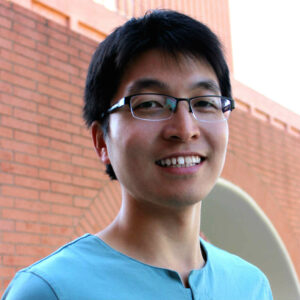
Haifeng Xu
Assistant Professor of Computer Science and Data Science -
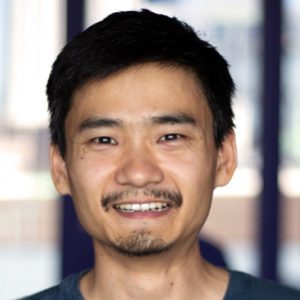
Jai Yu
Assistant Professor, Department of Psychology
Since joining Fermilab in 2016, my scientific work has focused on the search of new physics in neutrino oscillation experiments.
As a member of the MicroBooNE Collaboration (since 2016), I am mainly interested in searching for sterile neutrinos, as well as in the development of techniques for the reconstruction and analysis of Liquid Argon Time Project Chambers data. I also joined the DUNE Collaboration, where my main interest is CP violation in the neutrino sector.
Previously I worked for about a decade on the CMS experiments, with major contributions to the Higgs boson discovery, SUSY searches and Standard Model measurements.
I served as CMS Track Reconstruction convener in 2013-2014.
Kyle Chard is a Research Associate Professor in the Department of Computer Science at the University of Chicago and Argonne National Laboratory. He has been Program Director of the Data & Computing Summer Lab since its first iteration under CDAC in 2019, and previously oversaw the Summer Internship Program ran by the former Computation Institute.
He received his Ph.D. in Computer Science from Victoria University of Wellington in 2011. He co-leads the Globus Labs research group which focuses on a broad range of research problems in data-intensive computing and research data management. He currently leads projects related to parallel programming in Python, scientific reproducibility, and elastic and cost-aware use of cloud infrastructure.
My research examines the different ways in which goals, desires and needs affect how people perceive and respond to our environment. My work draws from the traditions of cognitive neuroscience, social psychology and affective science. I use a broad range of methodological tools, including behavioral experiments, computational modeling, fMRI, pupillometry, naturalistic paradigms and network analyses. By combining different tools and perspectives, I seek to characterize motivational influences on human cognition at the psychological, computational and neural levels. One ultimate goal of this work is to identify behavioral and neural targets of intervention to improve socio-cognitive functioning.
I direct the Motivation and Cognition Neuroscience Laboratory at the University of Chicago.
RESEARCH:
Cellular dysfunction in human disease occurs in a complex, three-dimensional space. However, many state-of-the-art techniques for studying cells rely on the dissociation of tissue to parse cells one by one, destroying any spatial context about the cellular environment. Using novel staining and imaging techniques, researchers can now probe the cellular constituents of human tissue with higher phenotypic resolution than previously possible and capture over 40 cell markers in a single biopsy, while preserving the spatial organization of cells in tissue. Artificial intelligence (AI) is necessary for high throughput processing of this data, as humans have difficulty interpreting information from multiple imaging channels. In her work, Madeleine Torcasso develops and implements various AI methods for quantitative analysis of highly multiplexed microscopy images. Using AI, researchers can automatically find and characterize cells in high-content image data and extract spatial features describing the cellular organization of disease states. These spatial features might also be linked with clinical features such as therapy response or patient prognosis. Torcasso is particularly interested in exploring the spatial context of immunity in various pathogenic states, ranging from autoimmunity to cancer.
BIO:
Madeleine Torcasso is a postdoctoral researcher in the Department of Radiology at the University of Chicago. She received her bachelor’s degree in Biomedical Engineering from Vanderbilt University in 2013 and her PhD in Biomedical Engineering from Texas A&M University in 2018. Her doctoral thesis focused on radiative transport modeling to help inform the design of optical imaging and sensing systems to detect disease in vivo. As a postdoc, she works with AI to quantify high-content optical microscopy images of human tissue samples. She is also interested in using AI to merge data from multiple imaging modalities to improve predictive models. In her free time, she likes to get away from the computer and run, hike, or walk; anything to stay active!
Julia Koschinsky is the Executive Director of the Center for Spatial Data Science at the University of Chicago and has been part of the GeoDa team for over 16 years. She has been conducting and managing research funded through federal awards of over $8 million to gain insights from the spatial dimensions of urban challenges in housing, health, and the built environment.
Ken Nakagaki is an interaction designer and HCI (Human-Computer Interaction) researcher from Japan. He is an assistant professor at the University of Chicago, Computer Science Department. He directs ‘Actuated Experience Lab’ [AxLab] there.
His research has been focuses on inventing novel user interface technologies that seamlessly combine dynamic digital information or computational aids into daily physical tools and materials. He is passionate about creating novel physical embodied experiences using such interfaces through curiosity-driven tangible prototyping processes. During his PhD study at MIT Media Lab, he pursued research in Actuated Tangible User Interfaces, under supervision of Prof. Hiroshi Ishii.
Before joining the Media Lab, he received Master’s and Bachelor’s degrees in interaction design from Keio University. His research has been presented in top HCI conferences (ACM CHI, UIST, TEI). His works were also demonstrated in international exhibitions and museums such as the Ars Electronica Festival and Laval Virtual. He has received numerous awards, including the MIT Technology Review’s Innovators Under 35 Japan & Asia Pacific, the Japan Media Arts Festival, and the James Dyson Award.
Website: https://www.ken-nakagaki.com/about.
I am an Assistant Professor of Computer Science at the University of Chicago. I received my PhD in Computer Science from Yale University in 2020. My current research explores social dynamics in human-robot interactions, where a robot’s social behaviors lead to positive outcomes for people (e.g., improved team dynamics and performance in a human-robot team, educational learning outcomes for children). During my PhD, I focused on developing robots that improve the performance of human-robot teams by shaping team dynamics to promote inclusion, trust, and cohesion.
Chenhao Tan is an assistant professor at the Department of Computer Science and the UChicago Data Science Institute. His main research interests include language and social dynamics, human-centered machine learning, and multi-community engagement. He is also broadly interested in computational social science, natural language processing, and artificial intelligence.
Sandra Tilmon, MPH, MS is a Healthcare Data Scientist at Data for the Common Good at the University of Chicago. Sandra worked as an Epidemiologist beginning in 2008, and then graduated from the UChicago Data Science program in 2022. Her work has focused on health disparities and safety net health care. LinkedIn
Anna is a Research Data Scientist at the University of Chicago’s Data Science Institute. Her recent work develops methodologies in machine learning for applied problems in medicine, with a particular emphasis on using unsupervised learning of representations to understand image content and structure. She is applying these methods to problems related to understanding and predicting cancer risk, designing personalized cancer screening policies, and designing clinical trials to evaluate AI systems. Previously, Anna served as a postdoctoral fellow at the Data Science Institute, where she was affiliated with the groups of Michael Maire in Computer Science and Olufunmilayo Olopade in the Department of Medicine. She earned her PhD in Physics from the University of Notre Dame, where Kevin Lannon advised her.
Haifeng Xu is an assistant professor in the Department of Computer Science and the Data Science Institute at UChicago. He directs the Strategic IntelliGence for Machine Agents (SIGMA) research lab which focuses on designing algorithms/systems that can effectively elicit, process and exploit information, particularly in strategic environments. Haifeng has published extensively at leading venues in computational economics, machine learning and theoretical computer science, such as EC, ICML, NeurIPS, STOC and SODA. His research has been recognized by a few awards, including the IJCAI Early Career Spotlight, Google Faculty Research Award, ACM SIGecom Dissertation Award (honorable mention), IFAAMAS Victor Lesser Distinguished Dissertation Award (runner-up), and a few best paper awards.
The following research themes are the recent focus of Haifeng’s research lab. More details can be found at his lab website.
The economics of data and machine learning, such as acquiring/eliciting/selling/exploiting information and data
Machine learning in non-cooperative multi-agent environments under information asymmetry, incentive conflicts, and deception
Algorithmic foundations and applications of optimal information design
Dr Jai Yu’s research focuses on understanding the neurophysiological mechanisms that support the formation of knowledge. His lab records and analyzes neural data. Prior to joining the University of Chicago, he worked as a data scientist at a Silicon Valley neuromodulation startup where he used advanced data analytics to guide the development of devices for treating neurological conditions.